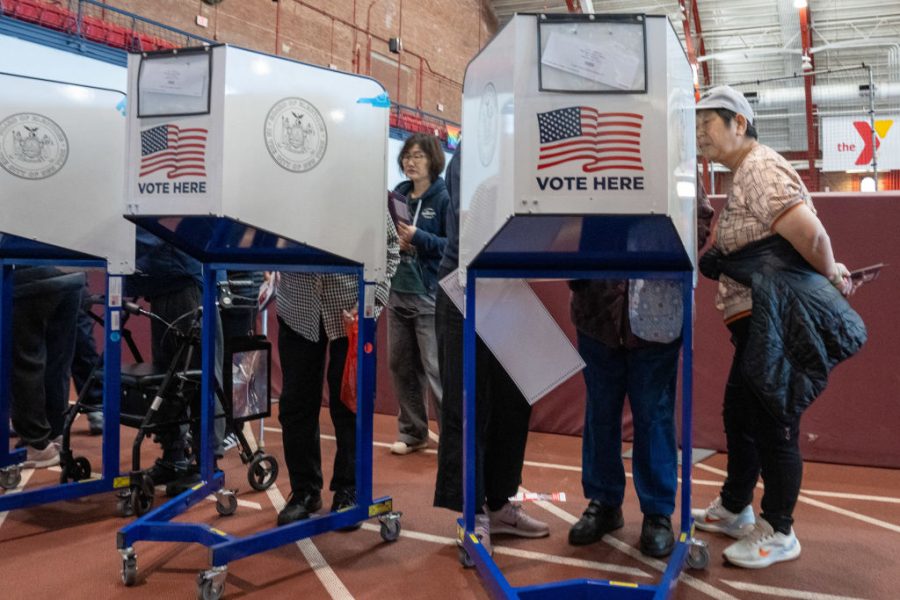As the US presidential race rollercoasters towards its finale, many Americans are already bracing themselves for a close and highly contested vote. The uncertain outcome of the election is just the beginning of what could be a fraught period for the United States and the world.
There are 76 days for mischief, or worse, between this year’s election date and the transition to a new president being sworn in on 20 January. Traditionally, this period has been used by the president-elect to piece together a cabinet, reward staffers and large campaign donors with senior positions, refine policy priorities, entertain foreign officials eager to ingratiate themselves, and studiously avoid any hard commitments that may handicap the administration down the road.
Questioning the legitimacy of the election results will increase the risks for the United States
Post-election, outgoing presidents and their administration are the lamest of lame ducks and eager to move on. Joe Biden will be doling out last-minute political favours, hosting farewell dinners, and hiring an architect for his presidential library – as well as raising the money to pay for it. His senior team will be busy parlaying their government jobs into private sector sinecures, signing on with speaker’s bureaus, and re-acquainting themselves with their family members.
The dangers of this political twilight period are entirely self-inflicted. Much of what happens during this two-and-a-half month period could be done well before or immediately after the election.
The US has legislation on the books designed to telescope the orderly transition of power. The Presidential Transition Act requires that office space and IT support is provided to the two candidates as soon as they are officially nominated at their political conventions. The Act also requires the existing administration to begin transition planning six months before election day, and to designate a senior career official to coordinate transition planning across all departments and agencies.
Separate legislation allows each candidate to submit requests for security clearances for transition team members who may need access to classified information. The law directs that these security clearances be completed by the day after the election, if possible. While the president can appoint more than 4,000 people, many senior officials could be vetted, confirmed by the Senate, and ready to assume their responsibilities soon after the election.
This transition period actually used to be longer. When the Great Depression hit during the 1930s, Franklin Roosevelt had to wait until 4 March,1933, to be sworn in. By that time, the banking system had crashed and unemployment was close to 25 per cent. In response, the 20th amendment to the US constitution moved the inauguration date up to 20 January, where it remains.
The British system eliminates this uncertainty. The prime minister voluntarily evacuates 10 Downing Street soon after losing an election. (Surprisingly, there is no legal requirement to do so.) There is no ambiguity over where governmental authority resides.
Questioning the legitimacy of the election results will increase the risks for the United States. The Republican National Committee is involved in more than 120 lawsuits across 26 states to ensure, it claims, that people do not vote illegally. They are planning to recruit and deploy 100,000 ‘election integrity directors’ in battleground states, along with an ‘election integrity hotline’ to report any alleged irregularities. Republicans have introduced legislation in Congress and in state houses around the country designed to prevent voter fraud, thereby laying the predicate for legal challenges if the election results don’t go their way. Democrats argue that sufficient laws and other safeguards already exist and these efforts are merely designed to deter people from voting.
Trump has already suggested that his accepting the outcome is conditional on it being ‘a fair and legal and good election’. If he loses, it is likely his supporters will again reach for extrajudicial remedies, as they infamously did on 6 January, despite far more precautions in place this time around.
The risks extend well beyond America’s shores. Foreign governments like Iran, Russia and China are already exploiting social media to promote disinformation, inflame public opinion, and sow domestic dissension, and they will continue to do so. The spectre of unrest and violence engulfing Washington or other major cities across the United States would give comfort to authoritarian regimes.
Bad actors could also seize this window of opportunity to issue threats, start a conflict, develop nuclear weapons, or generally behave badly. Putin’s war against Ukraine shows no signs of abating and, indeed, may escalate. North Korea’s Kim Jong Un could test another nuclear device, which would spur additional calls in South Korea and Japan to acquire their own nuclear arsenals.
The Middle East is already aflame with multiple wars ongoing across the region, and may expand further. The regime in Tehran is reported to be only days away from assembling a nuclear weapon. The ayatollahs could decide that a presidential transition presents the best time to complete Iran’s decades-long project of becoming a nuclear power. And China continues to claim vast swathes of the South China Sea, arm Russia’s aggression in Ukraine, and repress its own people.
So here we are, only a few days away from the most consequential election since the end of the Cold War – buckled in, white knuckled, and pulling Gs as the rollercoaster races through its final hairpin turns. Among all these uncertainties, having an extended period to transfer presidential authority seems both unnecessary and dangerous.
Listen to more election coverage on Americano:







Comments